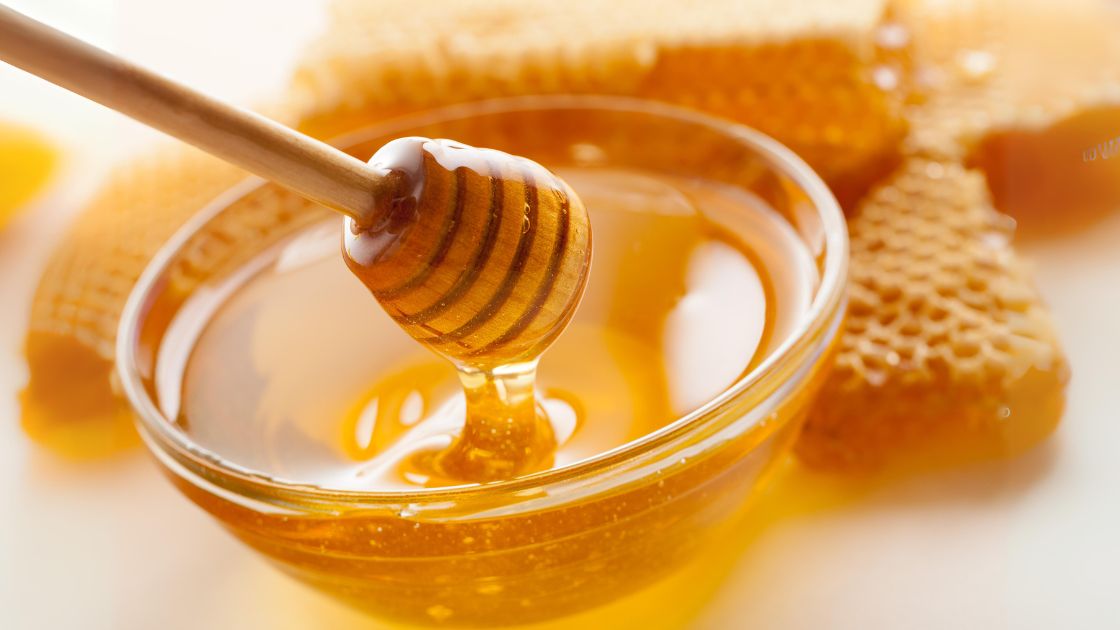
Manuka vs Buckwheat Honey: Which One To Choose?
You must have read that there are several different types of honey worldwide. But the two most famous ones are buckwheat honey and manuka honey. Have you ever heard how beneficial they are?
Both of them have several features that can be good for the health. Let us look at the benefits and also see which one is the best to use.
Difference Between Buckwheat & Manuka Honey
|
Aspect |
Buckwheat Honey |
Manuka Honey |
|
Source |
Produced by bees from buckwheat blossoms. |
Produced by bees pollinating manuka trees. |
|
Origin |
Primarily from North America and Europe. |
Native to New Zealand and parts of Australia. |
|
Color |
Dark amber to black in color. |
Dark amber to light brown in color. |
|
Flavor |
Strong, robust flavor with malty undertones. |
Intense, earthy flavor with hints of caramel. |
|
Nutritional Profile |
Rich in antioxidants, vitamins, and minerals. |
Contains methylglyoxal (MGO) with potent antibacterial properties. |
|
Medicinal Uses |
Traditionally used for sore throat relief and wound healing. |
Known for its antibacterial and anti-inflammatory properties, used for wound healing, digestive health, and immune support. |
What is Buckwheat Honey?
Buckwheat plants are great for farms because they stop weeds from growing and make the soil better. Farmers grow it as a cover crop to get the soil ready for their next plants. After growing, buckwheat can be turned into buckwheat flour. First, the plant blooms with beautiful white flowers, and then it makes seeds.
The honey is extracted from those blossoms. It is black in colour. There is a good amount of polyol content in this honey. Also, the antioxidants it contains are present in purple wine, dark chocolate and tea.
Buckwheat honey has more antioxidants than other varieties of honey, although being less sweet overall.
Therefore, switching to this variety is worth the health advantages, even if you might not use it as much in tea or toast.
Buckwheat honey has a pleasant taste and is a wonderful option for those in good health because of its high vitamin and mineral content.
Benefits of Buckwheat Honey
- In the past, buckwheat honey has strengthened the immune system, promoted physical healing, and combat free radicals. Moreover, this honey relieves coughs and sore throats.
- Honey is frequently found in cosmetics for the skin. According to studies, people with diabetes may find that buckwheat honey helps stabilise their blood sugar levels.
- According to the study, consuming black tea mixed with buckwheat honey greatly increases the body's antioxidant levels.
- Honey may be applied to wounds to remove moisture and kill bacteria, among other advantages.
- Honey can also stop germs from forming in an infected wound because of its high sugar content and low pH, which makes it acidic.
Also, Read: Benefits of having Honey daily
What is Manuka Honey?

Manuka honey is a delicious honey that is extracted from New Zealand blossoms. Manuka honey tastes extreme and woodsy, while buckwheat honey has a malty flavour. One thing that is common in this is that manuka honey also has a black colour.
The most well-known uses of buckwheat and manuka honey are in medication and restoration. One gain of manuka honey is that, since 1981, its medicinal residences have been extensively researched. Additionally, with technological know-how, manuka flower honey has been shown to possess antibacterial characteristics that make it powerful in opposition to ailments.
Benefits of Manuka Honey
- The antibacterial and antioxidant properties of manuka honey play a major role in wound care. Furthermore, it's important to remember that manuka honey has a lower pH than others, which may aid in the best possible wound healing.
- According to the research, sucking on a chew of manuka honey was shown to be more efficient than chewing sugar-free gum at lowering plaque and gingival bleeding.
- Honey can help reduce swelling and fight bacteria that cause pain. Research shows that people who eat manuka honey have fewer Streptococcus mutans, the bacteria that lead to sore throats.
- Manuka honey may have been featured in skincare products.
Buckwheat Honey's Electricity Inside the Bacterial War
While buckwheat honey has a robust presence in this vicinity, manuka honey has been regarded for its antibacterial characteristics for a long time. Buckwheat honey reveals antibacterial properties against a few germs similar to, if no longer more potent than, those of manuka honey.
It's time to acknowledge the contributions of others and understand buckwheat honey's influential antibacterial residences.
Symphony With Taste: A lot of Taste Experiences
While buckwheat honey produces a symphony of tastes that could thrill your flavour buds, Manuka honey is identified for its specific earthy bitterness. Every jar of buckwheat honey is a captivating experience via numerous characteristics, with occasional notes of sweetness akin to molasses.
Is Manuka Honey Superior to Buckwheat Honey?
Experts sincerely like researching the scientific studies which have been performed on the topics they write about. As it happens, these two honeys were the concern of quite some investigations. What they determined is as follows:
Manuka honey and buckwheat honey are the most broadly used and researched honey internationally. Although each honey's antibacterial and antioxidant traits are well-diagnosed, there are a few giant versions among them.
What makes Manuka Honey so Famous?
Manuka honey's outstanding and unique qualities are the principal motives for becoming famous and liked. Its exceptional potential to promote wound healing has made it well-known and a desired alternative for medical practitioners.
What does Science tell us?

Both Buckwheat honey and Manuka honey are nutritious, healthful meals with several potential benefits. According to research, Buckwheat honey may offer certain benefits over manuka honey regarding its antibacterial and antioxidant properties. What kind of honey is thus the best substitute? It depends on your preferences and the specific health advantages you seek.
While Manuka honey is highly valued for its antibacterial properties, Buckwheat honey has a strong flavour and abundant antioxidants. Given their potential medicinal advantages, both types of honey might be a terrific addition to your diet plan.
Conclusion
Buckwheat honey is a noteworthy option if you want honey with a high mineral and antioxidant content. And the pricing is really very good! Manuka honey is a better option if you want strong antibacterial properties.
It is important to remember that the quality of Manuka honey differs depending on the source. Before choosing, look for Manuka honey with a UMF (Unique Manuka Factor) rating.
The UMF grade indicates the quantity of MGO in the honey. A higher UMF score indicates stronger antimicrobial interest and a higher MGO stage.
FAQs
1. Is honey from Buckwheat better than other types?
As evidenced, buckwheat honey has a wide variety of tastes. Your personal taste preferences will determine whether you enjoy it or not. High-quality raw buckwheat honey provides several health-promoting qualities. We've compared its antioxidant properties to manuka honey; some people find it more beneficial than manuka because it costs less.
2. Can one use Manuka honey on a daily basis?
Manuka honey is safe for most individuals to ingest. Here's a broad rule of thumb for several groups: Adults in good health can have up to one teaspoon of manuka honey daily. Children: Those under a year old should not ingest manuka honey.
3. Is Manuka honey superior to other types of honey?
According to research, Manuka honey is more antibacterial and anti-inflammatory than normal honey. Manuka honey has antibacterial qualities that help heal colds, coughs, burns, and wounds. Regular honey is pleasant, but manuka honey smells strongly and tastes harsh.
4. Which is the best honey?
Manuka possesses antibacterial and antiviral properties. Methylglyoxal is the source of its therapeutic properties (MGO). Manuka honey is one of the healthiest types of honey in the world because of its high MGO concentrations. We have chosen it as the greatest honey in the world because of this.
5. Is buckwheat honey a sedative?
A single dosage of buckwheat honey taken before bedtime has been demonstrated in studies to help lessen and ease coughing and improve sleep quality.
Also, have a look at other honey comparisons:
Honey vs Maple Syrup | Manuka Honey vs Acacia Honey | Clover Honey vs Wildflower Honey | Neem Honey vs Manuka Honey | Set Honey vs Clear Honey | Sugar vs Honey vs Jaggery | Wildflower Honey vs Regular Honey | Organic Honey vs Regular Honey





Leave a comment
This site is protected by hCaptcha and the hCaptcha Privacy Policy and Terms of Service apply.